What is static IP and why do we need it?
Most Likely, You Have Heard The Term Static IP Many Times, But What Does Static IP Mean, And What Are The Advantages Of Using It?
When you connect to the Internet, you are assigned a unique IP address, which can be considered an identifier for people on the World Wide Web. Your IP address can be either fixed or variable.
Fixed IP means that whenever you connect to the Internet, your identity will be assigned to the network with a permanent and unchanged address. In the second case, which means variable IP, a new IP will be given to you every time you connect to the Internet.
What is IP?
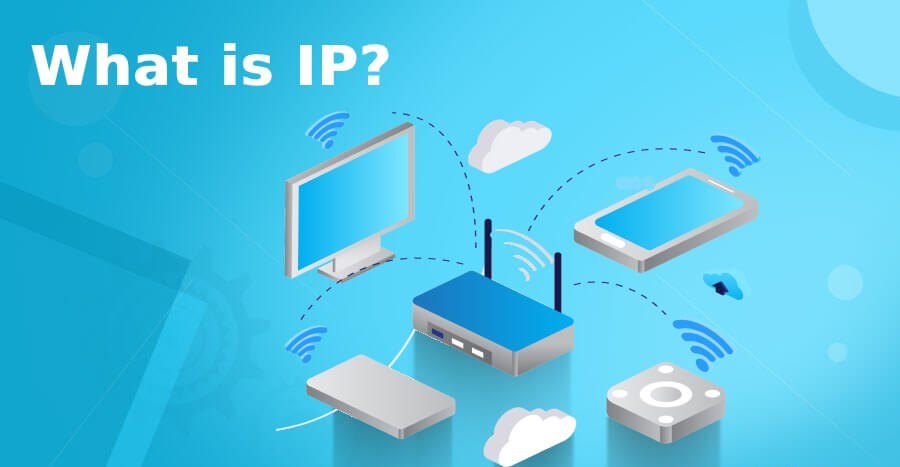
An IP address is a unique number assigned to each device connected to TCP/IP networks. Just like your physical home address lets people know where to send your birthday card, IP addresses identify computers and devices and allow them to communicate with each other.
IP addresses are stored as numbers. While computers tend to use numbers, humans prefer to use names. The Internet uses the Domain Name System (DNS) as an Internet address book, so you can use words like www.zoomit.ir instead of numbers to browse the Internet and provide addresses to devices on the network.
Nowadays, almost every home electronic product can have an IP address. These devices can be anything that connects to the Internet. These devices include computers, televisions, smart speakers, and intelligent refrigerators. Now home
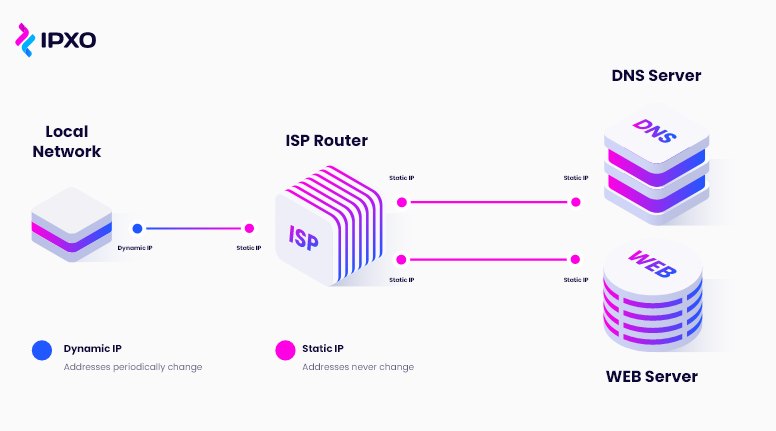
When you type a website’s URL into your browser, you are using DNS to look up the IP address of that domain. For example, if you type the part www.avast.com into your browser, DNS will return one of several IP addresses for this website, such as 77.234.41.52.
There are two versions of IP addresses in everyday use: IPv4 and IPv6. IPv4 addresses have four hexadecimal numbers separated by dots, like 192.168.0.1. IPv6 addresses have six hexadecimal digits separated by colons, like 2001:0db8:85a3:0000:0000:8a2e:0370:7334. There are about 4.3 billion IPv4 addresses, and they are almost all used up, but many more IPv6 lessons will not run out anytime soon.
What is a static IP address?
Static IP refers to an address that does not change. It is generally used for servers or other critical equipment. Once your device is assigned a static IP address, this number stays the same until the appliance is taken down or your network architecture changes.
Why do we need static IP?
Using a fixed or static IP will have advantages, which we will mention below.
- Better DNS support: Setting up and managing static IP addresses is much easier with DNS servers.
- Server hosting: If you host a web server, email server, or any other type of server, using a static IP address makes it easier for customers to find you through DNS. Customers’ access speed to your websites and services will increase if they use a static IP address.
- Convenient remote access: A static IP address makes it easier to work remotely using a virtual private network (VPN) or other remote access programs.
- Higher reliability communications: Fixed IP addresses make using the VoIP protocol for conference calls or other audio and video communications more accessible.
- More reliable geolocation services: With a static IP address, services can match an IP address with its physical location. For example, if you use a local weather service with a fixed IP address, you will most likely get the weather report you need instead of the weather reports from nearby cities.
Disadvantages of static IP
Using a static IP has advantages and disadvantages, which we will mention below.
- Static IPs are more vulnerable to hacking: With a static IP address, hackers know exactly where your server is on the Internet, making it easier to attack.
- More cost: Internet service providers (ISPs) usually charge more for static IP addresses. In most commercial ISP plans, static IP is offered as an optional option, but using this type of IP will usually lead to increased service costs.
- Real-world security concerns: Anyone with the right networking tools can locate you and your computers.
How do you set a static IP?
You need to contact your ISP and ask them to get a static IP address. You can then change your regular IP address to a static one. Note that creating a static IP address is an advanced network function and requires basic knowledge of TCP/IP protocols.
With a static IP address assigned to you by your ISP, here’s how to enter it manually on Windows 10 devices:
1. Click Start and select Settings. Note that you will need administrator-level access to do this.
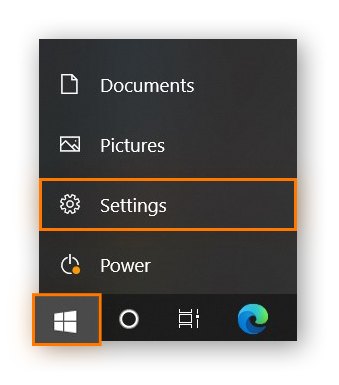
2. Select the Network & Internet option.
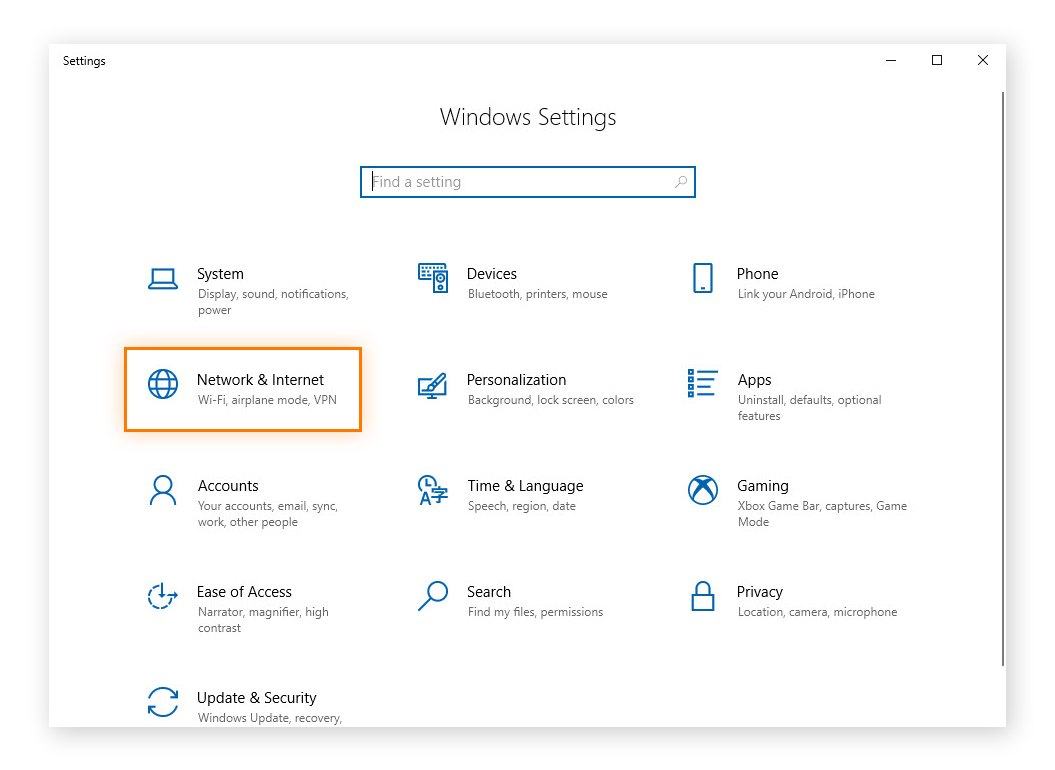
3. In the lower part of the local area connection field, click on Properties.
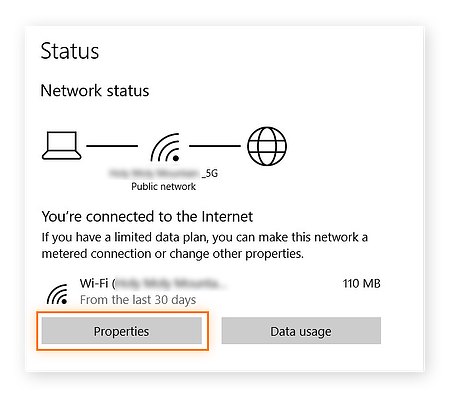
4. In the IP assignment section, click the Edit button.
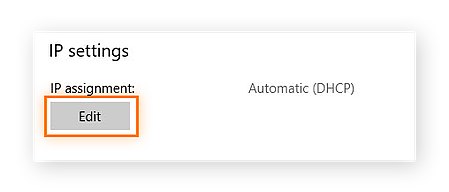
5. Select the Manual option, press the IPv4 button, enter your IP address, and click Save.
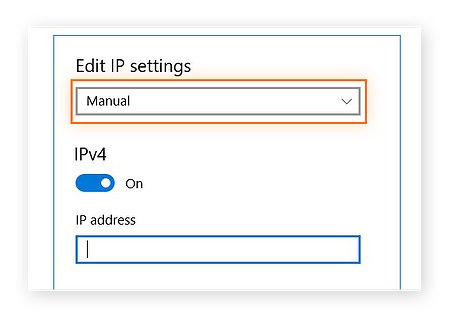
Internet service providers assign static IP addresses. Your ISP may or may not give you a static IP address, depending on the nature of your contract. In most cases, providing a static IP will increase your costs.
A static IP address can be either IPv4 or IPv6. Maybe the day will finally come when each piece of network equipment has a unique static IPv6 address. Of course, we haven’t reached that point yet, and currently, we usually use static IPv4 addresses.
Common questions and answers about static IP
Is it difficult to change the IP address?
If you get your internet service from an ISP or cable company, they will usually assign you a dynamic IP address. In your network, the connected devices are defaulted to variable IP addresses. Usually, changing to a fixed IP address is no problem. You can refer to your router’s settings, select the device you want to assign a static IP, and set the desired address to do this.
How do you protect your static IP address?
It doesn’t matter if your Internet IP address is fixed or variable because Internet service providers or hackers can access your location and what you do on the Internet through it. One of the best ways to hide from spies and hackers on the Internet is to use virtual private networks.

